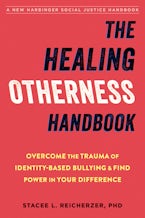We’ve all walked out of sessions feeling like a phony. Perhaps the client was unresponsive to our interventions, or didn’t seem to connect at all with our attempts to empathize and reflect. Maybe the client introduced a part of the story, or a way of living it, that we didn’t feel competent to address.
It’s easy to fall into old shame patterns when this occurs. Suddenly, we’re amplifying the session as an indication of professional failure. In each of these instances, we can engage in great thought-stopping work that might look like something we’d use with our clients.
First, take a belly breath. You know the kind. In through the nose, hold for a few seconds, out through the mouth.
And then observe yourself, perhaps with some exploratory questions:
- “What was it I needed to have happen in session?”
- “What did I expect to feel about myself if this outcome had occurred (That I am wise? That I am a worthwhile therapist?)?”
- “As I now step back and look at my own perceived needs of the session, is there any way that I perhaps blocked or even failed to see a successful outcome for the client?”
- How might I enter the next session without emphasis on my own needs to feel wise, worthy, etc.; and what might be my client’s outcome in doing so?”
It is easy to fall into the trap of requiring our work to validate or repair us, particularly during periods of professional burnout or when personal affairs are eclipsing our focus. Being conscious of our own needs, and how to meet these outside the therapy process, allows our focus to be rightfully centered: with the client.
Stacee L. Reicherzer, PhD, is a Chicago, IL-based transgender counselor, educator, and public speaker for the stories of the bullied, forgotten, and oppressed. The San Antonio, TX, native serves as clinical faculty of counseling at Southern New Hampshire University, where she received the distinguished faculty award in 2018. She travels the globe to teach and engage audiences around diverse topics of otherness, self-sabotage, and imposter phenomenon.



 Why Journaling Is Especially Helpful to Adult Children of Emotionally Immature Parents
Why Journaling Is Especially Helpful to Adult Children of Emotionally Immature Parents